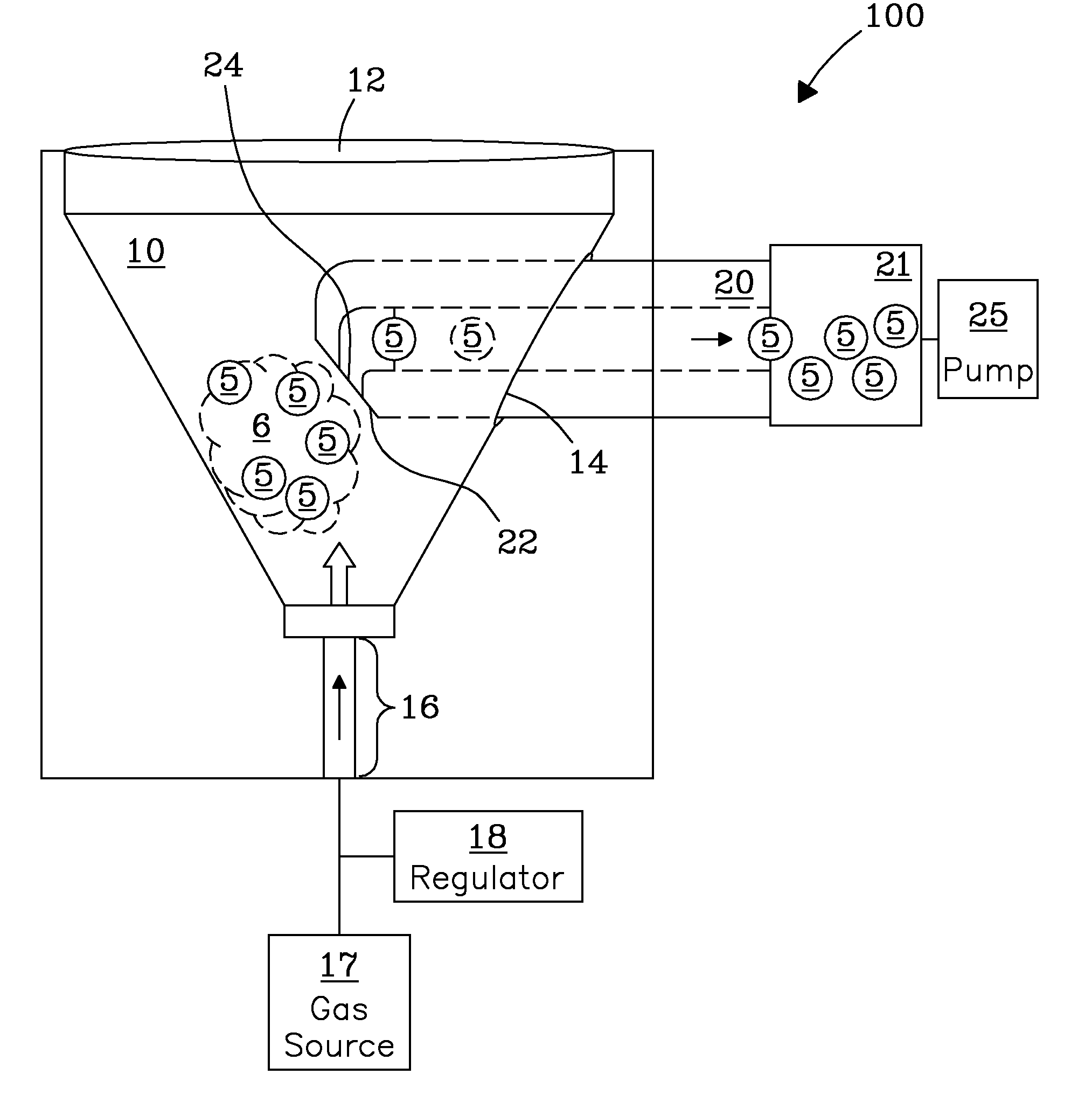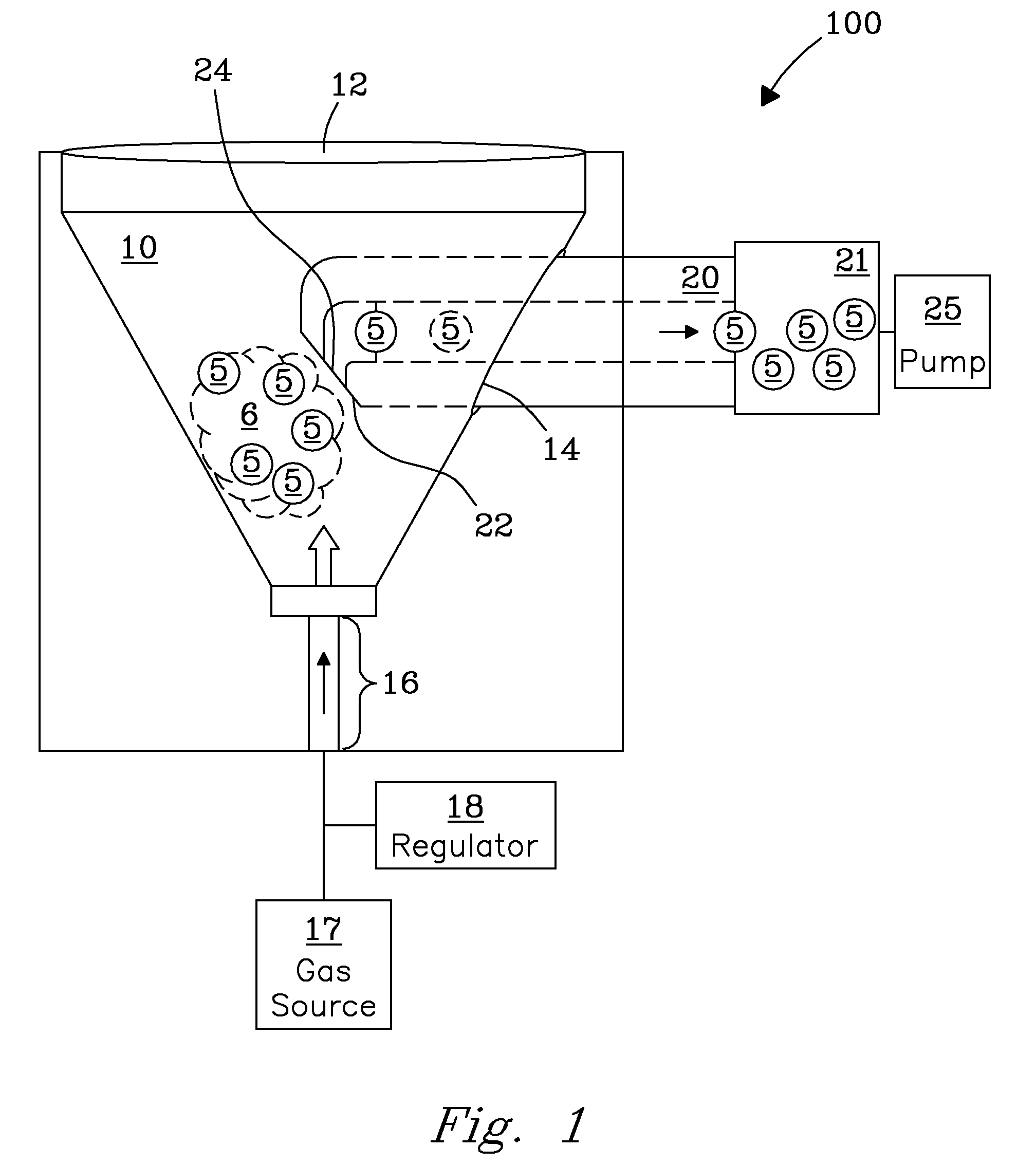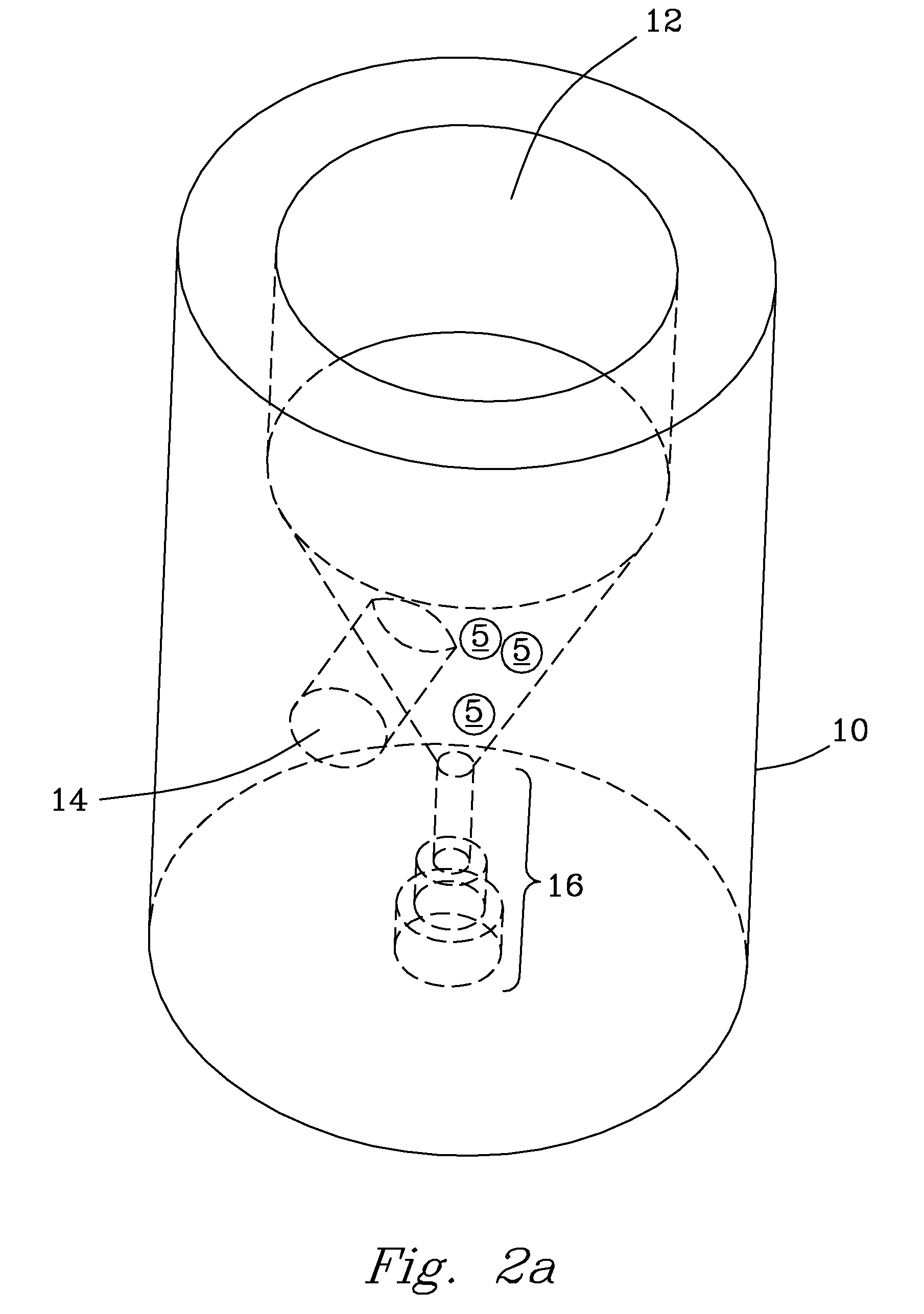Article separation apparatus and method for unit operations
a technology of unit operation and separation apparatus, which is applied in the direction of lighting and heating apparatus, instruments, furniture, etc., can solve the problems of destructive testing that is not suited to in-process and/or on-demand fabrication measurement and assessment, and cannot meet the anticipated demand of such systems, so as to minimize the dead volume
- Summary
- Abstract
- Description
- Claims
- Application Information
AI Technical Summary
Benefits of technology
Problems solved by technology
Method used
Image
Examples
example 1
Inspection Results from Testing of TRISO Fuel Particles (Inductive Impedance Data)
[0082]Example 1 describes results obtained from inspection of TRISO fuel particles using an inductive sensor.
[0083]Experimental. Fully coated (normal) TRISO fuel particles 5 [both (NUCO kernel) and surrogate (ZrO2 kernel)] were inspected using system 250 as described herein configured with inspection module 200 that included an inductive sensor 204. Normalized fractional inductive impedance data are presented in FIG. 5 and FIG. 6 as a function of pyrolytic carbon volume (cc) and carbon mass (g), respectively. Impedance values were also measured for normal TRISO particles 5 with a buffer layer of a typical thickness (101.2 μm) and for TRISO particles 5 having a thin or improper buffer layer thickness (18.5 μm). FIG. 7a and FIG. 7b compare fractional impedance values measured for the normal and defective particles 5, respectively.
[0084]Results. In FIG. 5 and FIG. 6, fractional inductive impedance change ...
example 2
Inspection Results from Testing of TRISO Fuel Particles (Capacitive Impedance Data)
[0086]Example 2 details results obtained using system 250 configured With inspection module 200 that includes a capacitive sensor 206 for measuring physical properties of a TRISO fuel particle 5.
[0087]Experimental. TRISO fuel particles 5 from three different coating Runs were inspected using system 250 configured with inspection module 200 that included a capacitive sensor 206. Set 1 consisted of fully coated TRISO particles 5. Set 2 consisted of particles 5 with a missing SiC layer. Set 3 consisted of particles 5 with a thin SiC layer. By measuring voltage and current flow across the plates it was possible to determine change in capacitance and capacitive impedance due to presence of TRISO particles 5 passed between plates of sensor 206. FIG. 8 plots fractional capacitive impedance results for particles 5 from the three different coating runs. FIG. 9 plots fractional capacitive change for TRISO fuel ...
example 3
Inspection Results from Testing of TRISO Fuel Particles (Combined Inductive & Capacitive Impedance Data)
[0094]Example 3 details results obtained using system 250 configured with an inspection module 200 including an inductive sensor 204 and a capacitive sensor 206 for measuring physical properties of surrogate TRISO fuel particles 5, as described herein.
[0095]Experimental. Fully coated TRISO fuel particles 5 were Inspected using both inductive sensor 204 and capacitive sensor 206 and impedance data collected. Data are plotted in FIGS. 10 and 11.
[0096]Results. FIG. 10 is a plot of fractional impedance values for sensor 204 and 206 as a function of sample number. Also plotted are the differences between sensor fractional impedance values (ΔZ for inductive and capacitive values). Particles with a full coating but with a thin buffer were also examined using the dual sensor measurement method. FIG. 10 plots measurement results showing the fractional impedance and the fractional impedance...
PUM
| Property | Measurement | Unit |
|---|---|---|
| angle of rotation | aaaaa | aaaaa |
| angle | aaaaa | aaaaa |
| displacement angle | aaaaa | aaaaa |
Abstract
Description
Claims
Application Information
 Login to View More
Login to View More - R&D
- Intellectual Property
- Life Sciences
- Materials
- Tech Scout
- Unparalleled Data Quality
- Higher Quality Content
- 60% Fewer Hallucinations
Browse by: Latest US Patents, China's latest patents, Technical Efficacy Thesaurus, Application Domain, Technology Topic, Popular Technical Reports.
© 2025 PatSnap. All rights reserved.Legal|Privacy policy|Modern Slavery Act Transparency Statement|Sitemap|About US| Contact US: help@patsnap.com



